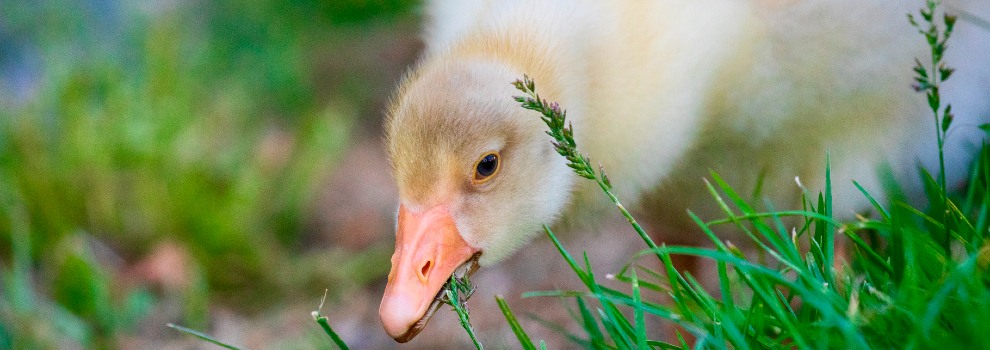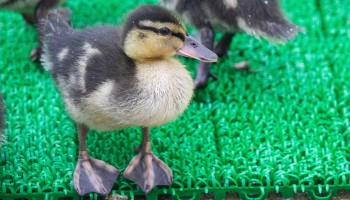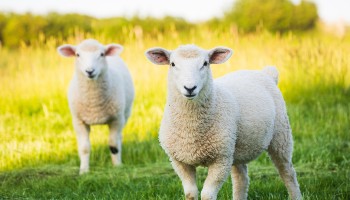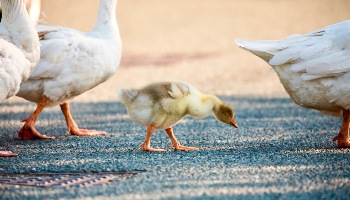Indoor shelter
Although ducks and geese like water, they still need protection and shelter from weather conditions such as driving rain, direct sunshine and strong winds. You need to make sure they have suitable indoor housing that's warm, dry and well-ventilated. Here is what you need to give your pet ducks and geese.
- A big enough entrance – this should allow your ducks and geese to pass through easily without having to crouch. More than one entrance helps avoid bullying and encourages them to move from the indoor to outdoor area.
- Space – there should be enough space inside the house for your ducks and geese to move around easily, exercise, stretch their wings and carry out their normal behaviours. We recommend providing at least one square metre of floor space for every two to three ducks, or one goose.
- Covered flooring – the floor should be covered with dry material such as wood shavings or straw to give them a comfortable resting area. Top this up or replace it when needed.
- Nest boxes – female ducks and geese may look for an isolated position to lay eggs, and prefer somewhere safe and secluded, such as an individual nest box. Nest boxes should be draught-free and lined with clean, dry, comfortable nesting material such as straw or wood shavings.
Make sure your ducks and geese have access to food and water in their house. Clean the house and everything inside it regularly. You’ll also need to disinfect it to get rid of parasites.
Outdoor space
As well as indoor shelter, you'll need to give your ducks and geese plenty of space to roam around outside. It's important to manage this outdoor area carefully, especially around water facilities where the ground is likely to become wet and muddy.
Here are some things to consider.
- Size – the outdoor space should be large enough to allow wet, muddy or barren areas to be sectioned off to recover and minimise the risk of disease. Note that the birds will need a sizable area of good pasture to roam on while sections are out of bounds.
- Grazing – geese are grazers and need a particularly good-sized grassy area.
- Shelter – provide overhead cover, such as small trees or purpose-built shelters, in several areas to protect from the sun, bad weather and wild animals.
- Food and water – shelter outdoor feed and water to keep it clean and dry and to avoid attracting rodents and wild birds.
-
Fencing – this should be well maintained and provide protection against wild animals. It should be sturdy enough to make sure the birds can’t escape, get trapped or be injured.
Open water facilities
If there isn’t a pond available, you'll need to give your ducks and geese access to open water sources, such as a kids’ paddling pool or trough, so they can carry out their natural water-related behaviours. Make sure it’s deep enough for them to wash their head and body, but shallow enough that they can get out easily. You’ll need to keep these containers clean to prevent disease.
Here are some ways to keep the water sources clean.
- Clean and refill regularly – clean the open water container at least once a day before refilling it with clean water.
- Keep drinking water separate – give your ducks and geese a separate supply of fresh drinking water, as open water sources can become dirty very quickly.
-
Prevent the surrounding ground from becoming wet and muddy – regularly move the water facilities to allow the area to recover, or place the water container over a well-drained area, such as a bed of shingle.
If you have ducklings or goslings
Give ducklings and goslings very shallow water troughs for their first few weeks of life. Young birds shouldn't have access to deep water for swimming in until they've developed enough waterproofing on their feathers.
Read more about caring for pet ducks and geese to learn about their diet, company and health and welfare.




